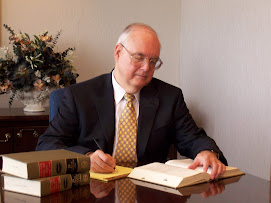In The Southern.com, it talks about a woman that only had two wishes for her will. One, she wanted to be cremated, and two, she wanted her ashes spread in Walmart. Allegedly she stated that this was the only way she could be sure her daughters would visit her twice a week. Unsure if that is a true story but an interesting approach to one's burial.
Jill Schlesinger, a financial writer and speaker associated with CBS News, wrote the following in her blog a couple of weeks ago:
.... I delivered a presentation about personal financial responsibility. When I conduct these affairs, I try to talk about the sexy stuff (stock market, investing) long enough to hook my audience before telling them one of the great lessons that I learned as an investment adviser/financial planner: people need to think a little bit less about their 401 (k) plans and lot more about their estate planning. The biggest problem that I saw in my 15-year practice was not a poorly-allocated portfolio–it was the astounding number of people who did not have what I consider essential estate documents: a will, a durable power of attorney and a health care proxy.
I couldn't agree more. In my years of practice, I have noticed two types of financial advisers. Some that work with their clients on their entire financial picture, which includes risk management, their financial and non-financial goals, and investment advice. The other type of advisor is the one that doesn't.
The Seattle Times reported on September 12 that a revocable trust won the State's Lotto. I found that interesting. For many years, estate planning attorneys felt that trusts were a superior estate planning document over a will but discovered some resistance in their implementation. For a while, clients were suspicious of a trust and thought that only the wealthy used them. Some financial institutions were reluctant to recognize trusts without going to their legal departments for clarification first. Now we have come so far that a trust is the winner of a lottery. Of course the trust isn't out there gambling but its grantor is, and must have registered its trust as the owner of the Lotto proceeds. We have come a long way in recognizing this superior estate planning device.
My Best,
Jim
Tuesday, September 15, 2009
Subscribe to:
Post Comments (Atom)

No comments:
Post a Comment